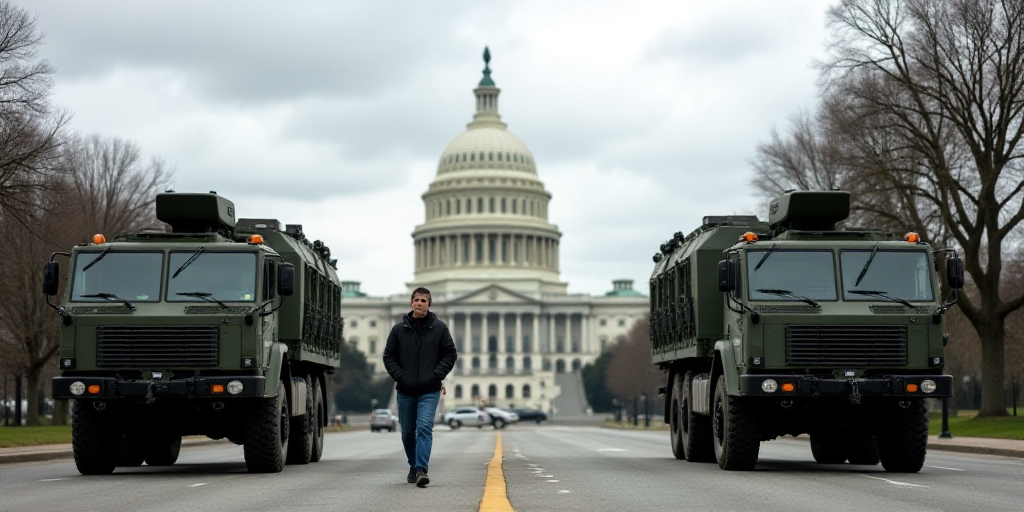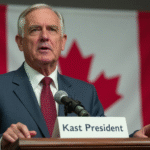Background on the Situation
In a controversial move, President Donald Trump declared a national emergency in Washington, D.C., amidst a dispute with the Immigration and Customs Enforcement (ICE) agency. This decision has sparked debate among critics who view it as an overreach of federal authority. With more than 2,000 law enforcement personnel patrolling the city, tensions have escalated.
Who is Donald Trump?
Donald John Trump is the 45th President of the United States, serving from January 2017 until January 2021. Known for his business background and reality TV fame, Trump’s presidency has been marked by polarizing policies and actions. His administration’s stance on immigration, including stricter border control and the controversial “zero tolerance” policy, has been a significant point of contention.
Why is ICE Relevant?
The Immigration and Customs Enforcement (ICE) is a federal law enforcement agency under the Department of Homeland Security. ICE’s primary mission is to promote border security and combat illegal immigration. The agency has been at the center of numerous debates regarding its enforcement tactics, detention practices, and overall approach to immigration policy.
Key Points of the Declaration
- National Emergency: Trump invoked the National Emergencies Act to deploy federal law enforcement officers to Washington, D.C., citing the need for additional security measures.
- ICE Dispute: The declaration stems from a disagreement between the Trump administration and ICE regarding the deployment of agents in the nation’s capital.
- Federal Overreach: Critics argue that the move represents an excessive use of federal power, raising concerns about civil liberties and the potential for increased tensions.
Impact on Washington, D.C.
The presence of over 2,000 federal law enforcement officers in Washington, D.C., has created an atmosphere of heightened security and unease among residents. Protests have erupted, with demonstrators expressing concerns about the militarization of American cities and the potential for human rights violations.
Historical Context
Throughout U.S. history, presidents have declared national emergencies to mobilize resources and implement specific policies. However, the current situation in Washington, D.C., has drawn comparisons to past controversial declarations, such as those during the Vietnam War and the War on Drugs. Critics argue that Trump’s declaration is more about political posturing than genuine security concerns.
Public Reaction
Reactions to Trump’s declaration have been mixed. Supporters view it as a necessary step to ensure safety and order, while opponents see it as an abuse of power and a threat to civil liberties. The debate has further divided the nation along political lines, with both sides entrenched in their positions.
Key Questions and Answers
- What is the purpose of Trump’s national emergency declaration? The stated goal is to provide additional security measures in Washington, D.C., amidst a dispute with ICE.
- How many federal officers are involved? More than 2,000 law enforcement personnel have been deployed to patrol the city.
- What are critics’ main concerns? Critics argue that the declaration represents an overreach of federal authority and may infringe on civil liberties.
- How has the public responded to the news? Public reactions have been polarized, with supporters and opponents expressing strong opinions on both sides.






